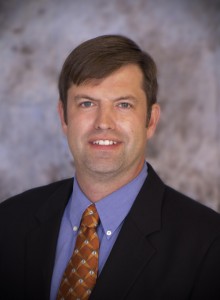 Greetings from Pierre. The legislature has wrapped up the 2017 session. While there have been some disappointments, I would like to focus on the accomplishments.
Greetings from Pierre. The legislature has wrapped up the 2017 session. While there have been some disappointments, I would like to focus on the accomplishments.
The repeal of IM-22 was a controversial issue in Pierre this session. However, with help from the voters, we passed HB1076. This bill creates the Government Accountability Board. The legislature will also study campaign finance reform over the summer.
This session, the legislature increased funding for the Intensive Meth Treatment Program. Across the board cuts in 2011 have had a devastating impact on our fight against meth addiction. Instead of a reduction in meth use, we have seen an increase in cases. This money will enable our providers increase the number of people receiving treatment for meth addiction.
The legislature also appropriated money for the Animal Disease Research and Diagnostic Lab addition and renovation at SDSU. This facility is our line of defense against animal disease and protecting our food supply. This lab also handles the quarantine process when an outbreak occurs. This lab serves our farmers as well as food processors like the turkey plant in Huron and Morrells in Sioux Falls.
During the governor’s budget address, he advocated for a 1% increase for education, Medicaid providers and state employees. When revenues came in lower than expected, these recommendations were eliminated by the governor. By statute, the legislature was still obligated to give education a three-tenths of a percent increase. Republican leadership advocated not giving an increase to education and voted to eliminate language that dedicated the ½ percent sales tax to education.
Through a bi-partisan effort with the Senate, we were able to get a .3% increase for education, .3% for most Medicaid providers and reduce insurance costs for state employees. Many in Republicans in the House were unhappy with this plan. Ultimately, most voted for the increases. We were able to get the increase without increasing the budget or making cuts that would hurt ongoing programs.
We did not attempt to put language back into statute that dedicated the ½ percent sales tax to education. The way the previous language was written, the legislature would have cut $5.9 million from education. Even with the .3% increase in the funding formula, education would have taken a $3 million cut. The ½ percent sales tax will most likely be an issue in the 2018 session.
Thank you to everyone that called, emailed or stopped by to talk about issues and share concerns. Please continue to contact me with issues or concerns at 940-3071 or dan.ahlers@sdlegislature.gov.










